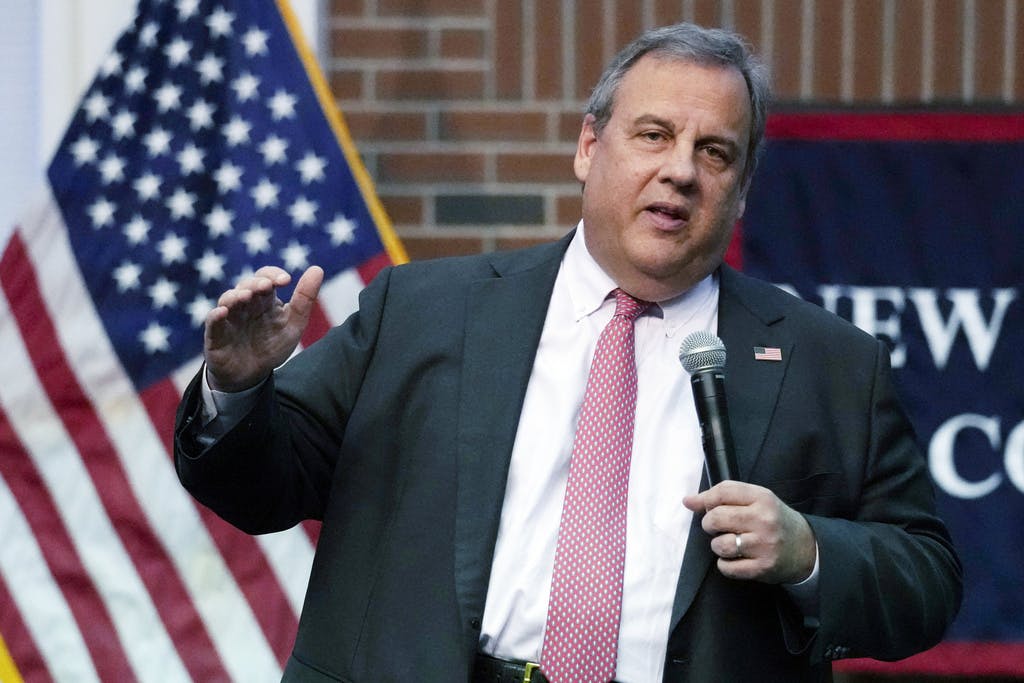Christie, Burgum Expected To Enter Increasingly Crowded GOP Field Dominated by Trump
Despite much ado over the growing GOP field, the size of the field may matter less than how the individual candidates go after Trump.

With Governors Christie of New Jersey and Burgum of North Dakota expected to enter the race the GOP field for president has officially become crowded. While it’s become conventional wisdom that a crowded field helps President Trump’s bid, it’s not clear that it will matter in the end.
A lot of ink has been spilled in publications from the Los Angeles Times to Bloomberg concerning the growing GOP presidential field, the party’s winner take all primary system, and Mr. Trump’s supposed divide and conquer strategy in dealing with his opponents.
While it’s true that a larger field could potentially fracture an avowedly anti-Trump coalition and 10 states have instituted winner-take-all primaries since 2016, it’s not clear that any of this will effect the outcome of the primaries.
That’s because support for Mr. Trump has only increased as the field has become bigger and it’s not clear there is a real anti-Trump coalition big enough to win the primaries to begin with.
According to FiveThirtyEight’s average of polling, support for Trump has trended upward as the field has grown. Between the beginning of March and the beginning of June, Mr. Trump saw his average of support rise to 54 percent from 46 percent.
This rise in Mr. Trump’s support has corresponded with a decrease in support for Governor DeSantis but it’s not obvious that Mr. DeSantis is losing support because other candidates are entering the race.
The rise in Mr. Trump’s support also comes as his fierce battle against the various prosecutors in pursuit of him raised his profile again, as did a CNN “Town Hall” where he bulldozed over a green interviewer, giving the struggling network its highest ratings in two years.
A YouGov and CBS News poll from early May gives a sense of how big the actual anti-Trump coalition of voters may be. The survey found that 73 percent of GOP primary voters were considering voting for Mr. Trump while only 27 percent were not.
A professor of political science at John Jay College, Brian Arbour, tells the Sun that he doesn’t think the size of the field really matters for another reason — it’s going to get smaller anyway.
“The field will clearly winnow and it’s likely some of that winnowing will happen before anyone votes,” Mr. Arbour tells the Sun. “It’s been common in the last few election cycles to see candidates dropping out before votes are counted because they lack support from key members of the Republican Party network and voters in the polls.”
In 2020, Vice President Harris dropped out in early December, citing a lack of funding. This move, however, proved to be valuable in helping Ms. Harris stay in the running as a vice presidential pick.
There will also inevitably be candidates who drop out after the Iowa caucuses and the early primaries like New Hampshire, as these states are often seen as make or break ones for longshot White House hopefuls.
Mr. Arbour points to what happened in the 2016 election as further evidence for why the size of the field is a non-issue in the primaries.
“There’s a conventional wisdom that the split field helped Trump in 2016 and I also disagree with that bit of conventional wisdom,” Mr. Arbour says. “As candidates dropped out in 2016 Trump continued to pick up votes.”
Even though he also pulled off some plurality wins in the 2016 primaries, Mr. Trump tended to gain support as other candidates dropped out of the race, winning a clear and sometimes overwhelming majority of the vote in the last 16 GOP primaries after a big break in the New York primary.
This doesn’t mean, however, that there’s no path to victory for the many non-Trump candidates in the primary. With the first primaries nearly a year away, it’s too early to make predictions based on polls or past performance.
What is clear, is that for any candidate to surpass Mr. Trump in the poll, they will need to address the former president and his supporters directly.
Mr. Christie, for his part, has vowed to make his purpose in the race addressing Mr. Trump in a way other candidates have yet to. Mr. DeSantis has also ramped up his attacks on Mr. Trump attacked his Covid and border policies.
There is also the possibility that if Mr. Trump’s many legal troubles become far more grave in the form of new indictments and the real possibility of prison, that it could affect his support in the party, although his current assortment of legal woes appear to have had the opposite effect.
In Mr. Arbour’s opinion, one point of leverage that GOP opponents looking to overtake Mr. Trump in the polls will use is the idea that — even though other candidates are far from a sure bet — Mr. Trump could deliver the GOP another defeat in 2024.
“What’s clear to Republicans is that they understand that Trump is singularly problematic for them, an understanding which is based on election results rather than polling,” Mr. Arbour says.

